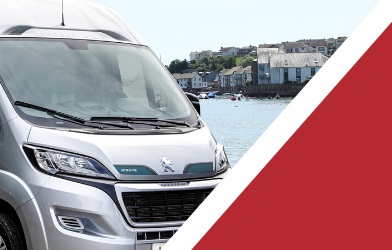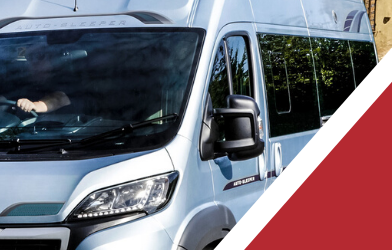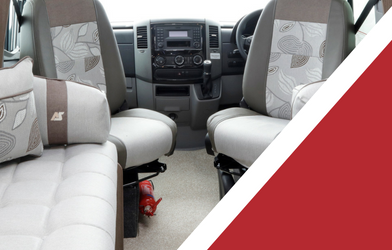Your biggest investment is likely to be the home you live in. But, after that, a motorhome comes in a close second as the most expensive item you might consider buying.
The truth of the matter all depends on your personal financial circumstances, of course. What is in no doubt, though, is that any such purchase requires significant expenditure, and it will be prudent to think carefully how you go about funding a new motorhome.
Your source of funds
Unless you are one of those very rare individuals with stacks of cash in hand, the funds you need to buy a new motorhome have to come from somewhere – a source involving some kind of formal process.
There are several different avenues you might want to pursue in your search for such a source of funds and here at Derby Motorhomes, we’ll try to objectively outline some of those for you.
Funding through pension cash-ins, inheritances, savings and liquidating financial instruments
Savings, investments, and even your pension pot have the potential for providing you’re the funding you need. The examples are numerous and include:
- the rules on withdrawing funds from your pension pot have been recently relaxed and the government-sponsored website explains how you can do this once you reach the age of 60 or 65 (or age 55 if you have a workplace or personal pension);
- use of a bequest that has been left to you in the will of a deceased friend or relative; or
- your sale of investments through the liquidation of stocks and shares you own.
Some of these options may provide you with sufficient funding to buy your new motorhome outright – with no monthly repayments going forward.
Nevertheless, you may need to bear in mind that although these options give you immediate access to the funding you may need, neither one of them might be the most appropriate or prudent way of proceeding with your intended purchase.
If you have depleted your existing savings, investments, and reserves of cash, for example, they will no longer be there if you face any financial emergency in the future and need more or less immediate access to additional funds.
These are complicated matters, and we are by no means qualified to offer financial advice or guidance. Instead, we recommend that you consult an independent financial adviser before cashing in your savings or investments or withdrawing funds from your pension pot.
Bank loans
Depending upon your personal financial circumstances and the standing you have with your high street bank, you might want to consider an application for a standard personal loan to fund the intended purchase of your motorhome.
This will give you the cash you can then use to pay for the vehicle, whilst you repay the loan over time, through monthly repayments to the bank.
A personal loan such as this is a fairly straightforward matter, although you might find that banks are perhaps a little less free with such lending for luxury items than they might have been some 15 years or so ago. You may also need to have an excellent credit history record and find a fairly substantial deposit towards the vehicle from your own reserves.
Hire Purchase (HP) and related dealer finance
This essentially involves a finance company purchasing the vehicle which legally remains their property although you will be allowed to use it as the “registered keeper”.
You will repay the funds provider over time and once you make the final payment, the vehicle becomes legally yours.
An initial deposit – typically of around 10% of the purchase price – is generally required from the outset.
Secured loans and equity finance
A secured loan is borrowing against assets you either own or have substantial surplus cash invested in.
For example, if your home is realistically valued at £400,000 and you have an outstanding mortgage on that of £50,000, then you have £350,000 notional equity in your property. It may be possible to borrow against some of that equity in order to buy your motorhome.
In that event, you must keep firmly in mind that your home is at risk if you take out a loan secured against it and find yourself subsequently unable to make the repayments on the loan.
Summary
There is a wide range of funding options available, and we’d welcome your contact in order to clarify how we might be able to assist further.




